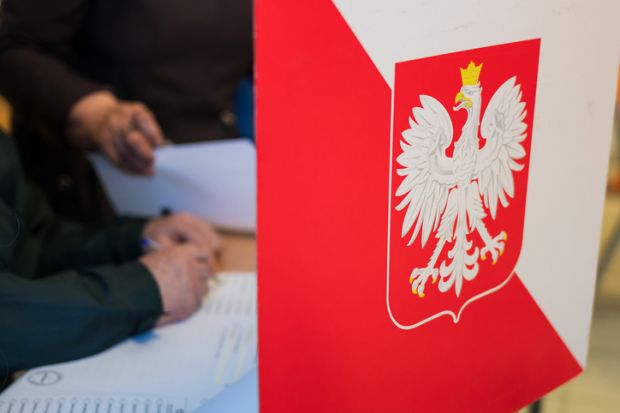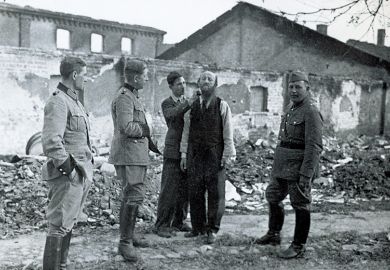The nomination of Karol Nawrocki as the nationalist Law and Justice (PiS) party’s candidate for the Polish presidency is a cause for concern for the country’s historians, sector leaders have said, given his current role as head of the widely criticised Institute of National Remembrance.
Dr Nawrocki will run against Rafał Trzaskowski, the liberal Warsaw mayor put forward by prime minister Donald Tusk’s Civic Coalition in the 2025 election. While the role is largely ceremonial, the president has significant power to veto legislation – as demonstrated by incumbent PiS president Andrzej Duda, who has used the position to repeatedly block government reforms. As such, the election outcome could either bolster Mr Tusk’s government or signal a political comeback for PiS.
“Because we must defend Poland, we must defend our values, we must not allow our symbols to be taken away and our sovereignty to be limited,” Dr Nawrocki said in a speech announcing his candidacy, according to Reuters.
But the historian and sociologist Adam Leszczyński, an associate professor at SWPS University, told Times Higher Education that the state-run Institute of National Remembrance promoted a right-wing attitude to Polish history. “It serves a political purpose: propaganda for the Law and Justice party,” he claimed.
Michał Bilewicz, director of the University of Warsaw’s Center for Research on Prejudice, said the Institute of National Remembrance has “openly attacked” Holocaust scholars researching the role of the country’s non-Jewish population in the genocide of Polish Jews. As a result, he said, “I assume that [Dr Nawrocki] would not be a good option for historians.”
THE approached Dr Nawrocki for comment.
The overall political impact of the Polish presidency is limited, with “almost no role in everyday policymaking”, Dr Bilewicz noted. The president is responsible, however, for signing off on promotions to full professorships. While the task is a ceremonial one, and the president does not have the power to veto these promotions, Mr Duda has refused to sign off on several – including the professorship of Dr Bilewicz. Should Dr Nawrocki win the presidency, “I do not expect him to sign my full professor promotion, as he obviously would share President Duda’s approach,” Dr Bilewicz said.
Despite the president’s limited political power, the upcoming election was “important in the symbolic view”, Dr Leszczyński said. Should Dr Nawrocki secure the presidency, “it would be a huge win for Law and Justice. It could mean they will be back in a few years.
“The stakes are really high,” he said.
Register to continue
Why register?
- Registration is free and only takes a moment
- Once registered, you can read 3 articles a month
- Sign up for our newsletter
Subscribe
Or subscribe for unlimited access to:
- Unlimited access to news, views, insights & reviews
- Digital editions
- Digital access to THE’s university and college rankings analysis
Already registered or a current subscriber?








